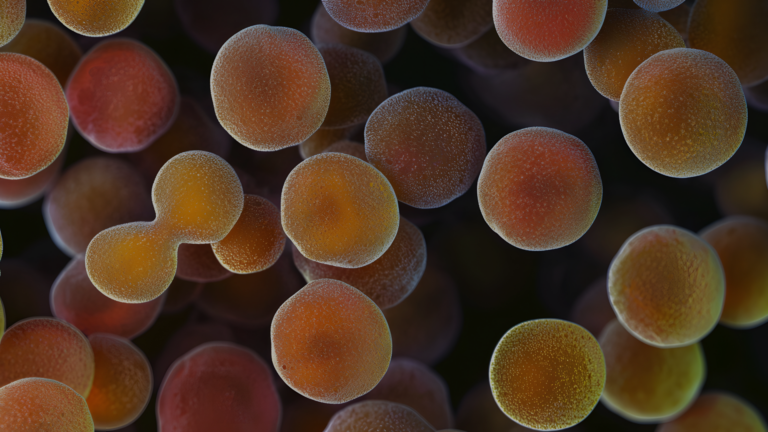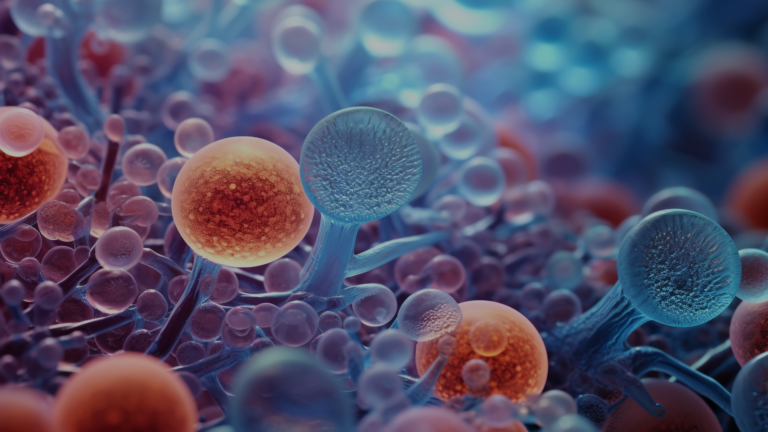In recent years, scientists have been captivated by the gut microbiome—a bustling community of trillions of microorganisms residing in our digestive systems. While its role in digestion and immunity is well-documented, groundbreaking research published in Frontiers in Microbiology sheds light on an equally fascinating aspect: the gut microbiome’s ability to produce and share micronutrients essential for our health.
Let’s dive into the micronutrient magic of the gut microbiome and why it matters for your health.
What Does the Gut Microbiome Do?
The gut microbiome is like a bustling city where every microbe has a job. Among its many responsibilities, one standout task is its ability to produce essential vitamins and other micronutrients. This “production line” of nutrients supports various bodily functions, from boosting immunity to maintaining metabolic health.
Here’s what the research found:
- Micronutrient Production:
- Gut microbes produce vital vitamins like B vitamins and vitamin K, which the body cannot synthesize on its own.
- Certain microbes act as specialists, creating specific nutrients that other members of the microbial community (and the host!) rely on.
- Collaboration in the Microbial Community:
- Much like a well-organized team, microbes share resources. If one type of bacteria excels at producing vitamin B12, others in the ecosystem benefit from its surplus.
- This nutrient-sharing fosters a balanced and resilient microbiome.
- Benefits to the Host (That’s You!):
- These microbial activities directly support human health. For example, vitamin K aids in blood clotting, while B vitamins boost energy production and cognitive function.
- A thriving microbiome reduces the risk of health issues like anemia and inflammation.
When Things Go Wrong: Dysbiosis and Deficiency
Sometimes, the microbiome’s harmonious balance is disrupted—a condition called dysbiosis. This imbalance can impair the microbiome’s ability to produce essential nutrients, leading to deficiencies that ripple through the body. Symptoms might include:
- Fatigue or brain fog due to a lack of B vitamins.
- Increased inflammation or weakened immunity from disrupted microbial functions.
Dysbiosis isn’t just a health hiccup; it’s a wake-up call to support and restore microbial balance.
Harnessing the Power of Microbial Micronutrient Production
The good news? We can actively support our microbiomes and enhance their nutrient-producing prowess. Here’s how:
- Personalized Nutrition:
- Researchers are developing probiotics and prebiotics that target specific microbial pathways, boosting the production of essential vitamins.
- Tailored dietary plans based on your unique microbiome profile can optimize its function.
- Proactive Gut Health:
- Eating a fiber-rich diet nourishes beneficial bacteria, enabling them to produce and share nutrients more effectively.
- Fermented foods like yogurt and kimchi introduce live beneficial bacteria, further enhancing gut health.
- Innovative Therapies:
- Emerging treatments like precision probiotics and microbiome-focused supplements are making it easier to support gut health and address deficiencies.
The Future of Microbiome Science
The research highlights a promising future for leveraging the gut microbiome in health and medicine. By understanding the interplay of microbial functions and human health, we are moving closer to personalized interventions that:
- Enhance metabolic health.
- Support immunity.
- Improve mental well-being through the gut-brain axis.
With a healthy microbiome, we can unlock the full potential of these microbial “micronutrient factories.”
Takeaway: Your Gut Microbes Are Your Wellness Allies
The tiny organisms in your gut aren’t just passive passengers; they’re active contributors to your health. By producing and sharing essential micronutrients, your microbiome plays a vital role in keeping you energized, focused, and healthy.
So, take a moment to appreciate your gut microbes—and make choices that help them thrive. Whether it’s adding more fiber to your diet, exploring personalized probiotics, or simply staying curious about microbiome science, every step you take brings you closer to optimal health.



